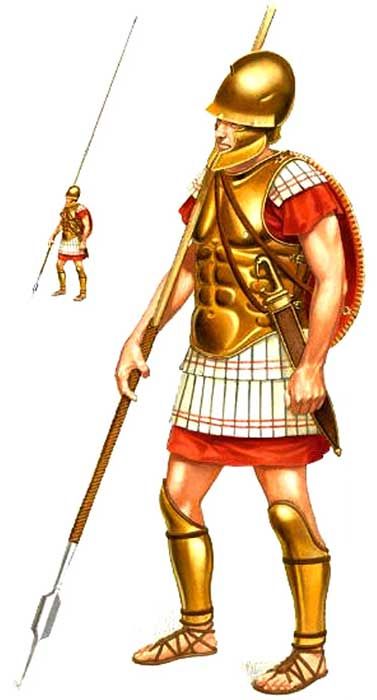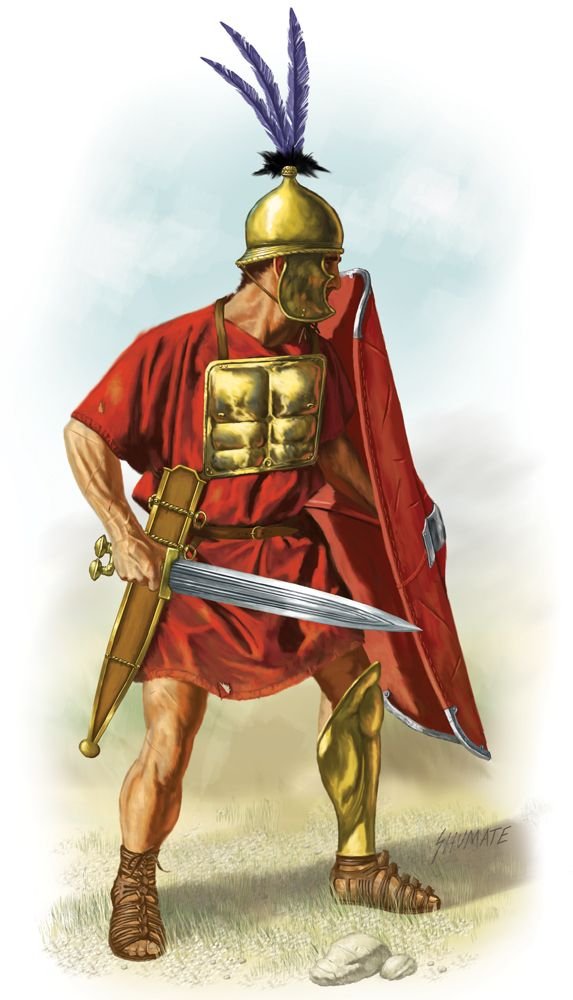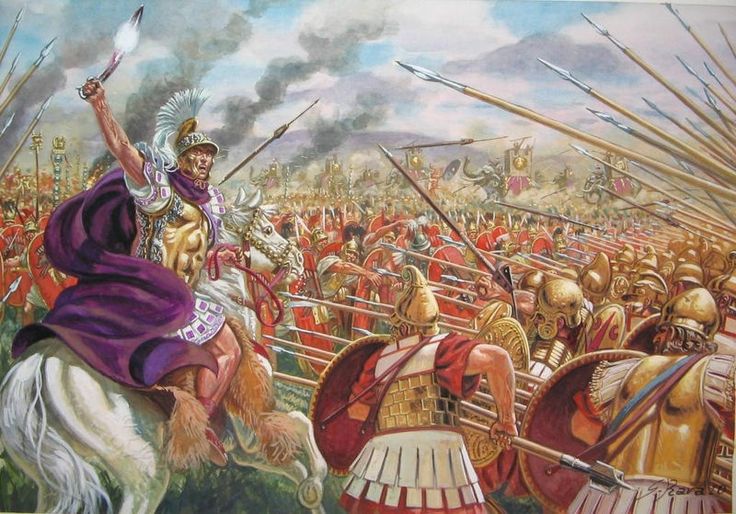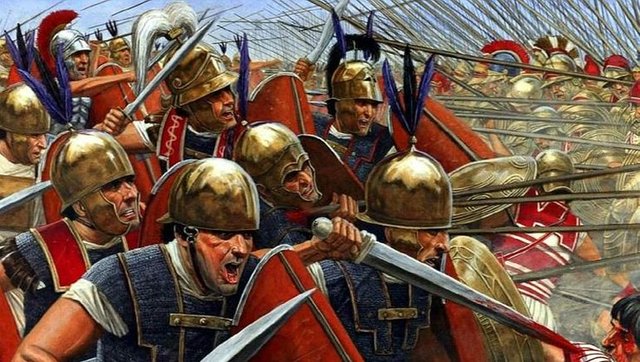The first great test of the Roman Republic 1.1 Arrival of Pyrrhus of Epirus
Rome has established relations with the Greater Greeks (Magna Graecia) on the principles of friendship and respect, also because they felt that they met with a superior civilization. But after the defeat of the Samnite people, the Roman state came directly in contact with the Greek cities of the Italian Peninsula.
The beginning of Roman intervention in Greek affairs began in 282 BC. when they set up garrisons in the Greek cities of Thuri (the western end of Tarentine Bay), Locri and Rhegium. Although it was a measure against the Italian peoples of Lucania, the most powerful city of Magenta Graecia, Tarentum saw it as the aspirations of Rome to control the southern part of the Italian Peninsula.
The situation worsened when a Roman naval squadron of 10 ships appeared in the Tarantine Waters to show their strength and the Tarantine navy responded by sinking several Roman ships. Rome sought compensation for their sunken ships rather then attacking directly, hoping that in this way they would show that they are not interested in territorial gain.
But when the representatives of the Roman Senate came to Tarentum with offers for a peaceful solution the Tarentines grievously insulted them and war was inevitable. Tarentum joined forces with the united forces of Samnites, Lucanians and Messapians, but soon realized the diversity of the coalition.
Tarentum was now faced with a Roman attack and certain defeat, unless they could enlist the aid of a great power, which they found in Pyrrhus who happily agreed to help.
Pyrrhus was a Greek general and statesman of the Hellenistic period. He was king of the Greek tribe of Molossians, of the royal Aeacid house, and later he became king of Epirus. He is considered one of the finest military commanders in history and was favourably compared to Alexander the Great by another famous general Hannibal.
Pyrrhus entered Italy with an army consisting of 20,000 infantry, 3,000 cavalry, 2,000 archers, 500 slingers, and 20 war elephants in a bid to subdue the Romans. The elephants had been loaned to him by Ptolemy II. king of Ptolemaic Egypt, who had also promised 9,000 soldiers and a further 50 elephants to defend Epirus while Pyrrhus and his army were away.
Pyrrhus could count on the city that had invited him, but also on Metapontum and Heraclea, and immediately ordered the Tarentines to hand over their citadel to him and forced them to do military exercises.

Source
A reconstruction of a phalanx soldier

Source
A reconstruction of a Roman Hastati
Meanwhile, the Romans had sent their consul Publius Valerius Laevinus to the south. His army - two Roman legions of 4200 men, two Latin legions of the same size, 1200 cavalry - was smaller than that of Pyrrhus, but the main problem for the Romans was that they were not yet used to the type of war that had been developed by Philip of Macedonia and Alexander the Great.
At Heraclea, the armies engaged. The legionaries attacked the hoplite lines in the Epirote phalanx, but found them impenetrable. While the two infantry arrays were locked, Pyrrhus' horsemen and elephants attacked on the wings. The Romans, who had inferior cavalry, were unable to cope with the charge, and found their wings turned.
They lost 7,000 men but were able to return to the north with discipline still intact. Pyrrhus lost 4,000 soldiers, which he could not replace. It had been an expensive victory, but the results were sensational: several inland tribes (the Lucanians, Bruttians, and Messapians) joined him, and the Greek cities of Croton and Locri did the same. The Romans had almost completely lost control of the south.
With this great victory Roman lands were opened to him, but this was not the end for Rome, soon they would have another opportunity to face Pyrrhus of Epirus on the battlefield.

Bibliography
*https://en.wikipedia.org/wiki/Pyrrhus_of_Epirus
*https://www.ancient.eu/pyrrhus/
*http://www.livius.org/articles/person/pyrrhus-of-epirus/pyrrhus-2/
*https://en.wikipedia.org/wiki/Battle_of_Heraclea




Congratulations! This post has been upvoted from the communal account, @minnowsupport, by seltkirk from the Minnow Support Project. It's a witness project run by aggroed, ausbitbank, teamsteem, theprophet0, someguy123, neoxian, followbtcnews, and netuoso. The goal is to help Steemit grow by supporting Minnows. Please find us at the Peace, Abundance, and Liberty Network (PALnet) Discord Channel. It's a completely public and open space to all members of the Steemit community who voluntarily choose to be there.
If you would like to delegate to the Minnow Support Project you can do so by clicking on the following links: 50SP, 100SP, 250SP, 500SP, 1000SP, 5000SP.
Be sure to leave at least 50SP undelegated on your account.
Great job. Love this period of history.
Thanks dude, i am going to write more about this period still getting used to steemit. :)
Čestitke na korištenju taga #steemitbalkan
Damn! Pyrrhus was on the next on my Enemies of Rome list :P you are doing a great job, I wonder if it's worth doing it now
Thanks mate.
I will be doing Pyrrhus's Italian and Sicilian campaign, his struggles in Greece and Macedon are an open season. :P
But if you want you can write about Pyrrhus, would love to read your version and you will probably do a better job than me. :)